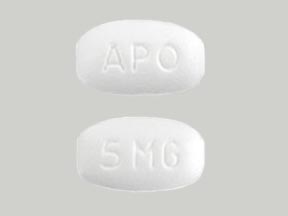
Cetirizine Coupons & Savings Card – Discount Prices from $8.70
Generic for: Zyrtec, Zyrtec childrens allergy, Gnp all day allergy
My prescription
Edit
5MG, Cetirizine (30 Tablets)
Select pharmacy

Walgreens
$8.70
COUPON PRICE
Albertsons
$12.61
COUPON PRICECetirizine savings card
Show this card to your pharmacist
Walgreens
$8.70
BIN
ID
PCN
GRP
015995
LHKPY912611
GDC
DR33
Powered by
More prescriptions for hives
More prescriptions for hives
Price history for Wal-zyr (brand) & Cetirizine (generic)
30 Tablets, 5MG
Average retail price for Wal-zyr
Average retail price for Cetirizine
Average SaveHealth price for Cetirizine
Our price history data is based on aggregated prescription data collected from participating pharmacies in America. Our prescription data updates daily to reflect the latest price changes. If you notice a missing data point, it means there wasn't sufficient data available to generate a monetary value for that date.
We analyzed Cetirizine prices for (5MG, 30 Tablets) over the last 12 months. The average retail price was $30.96, while the average price using the SaveHealth discount card was $26.70. That's a savings of approximately 13.76% when using our Cetirizine coupon.
Compared to the generic version, Wal-zyr had an average price of $11.41 over the same time period. With the SaveHealth savings card, Cetirizine is -134.01% cheaper on average than Wal-zyr.
*Retail prices are based on pharmacy claims data, and may not be accurate when we don't have enough claims.
Cetirizine Hcl Childrens Alrgy (Cetirizine) dosage forms
Dosage Quantity Price from Per unit 5MG 30 Tablets $10.54 $0.35 5MG 100 Tablets $20.03 $0.20 10MG 1 Tablet $9.05 $9.05 10MG 5 Tablets $9.26 $1.85 10MG 6 Tablets $9.32 $1.55 10MG 7 Tablets $9.37 $1.34 10MG 10 Tablets $9.53 $0.95 10MG 14 Tablets $9.74 $0.70 10MG 15 Tablets $9.79 $0.65 10MG 20 Tablets $10.06 $0.50
| Dosage | Quantity | Price from | Per unit |
|---|---|---|---|
| 5MG | 30 Tablets | $10.54 | $0.35 |
| 5MG | 100 Tablets | $20.03 | $0.20 |
| 10MG | 1 Tablet | $9.05 | $9.05 |
| 10MG | 5 Tablets | $9.26 | $1.85 |
| 10MG | 6 Tablets | $9.32 | $1.55 |
| 10MG | 7 Tablets | $9.37 | $1.34 |
| 10MG | 10 Tablets | $9.53 | $0.95 |
| 10MG | 14 Tablets | $9.74 | $0.70 |
| 10MG | 15 Tablets | $9.79 | $0.65 |
| 10MG | 20 Tablets | $10.06 | $0.50 |
| 10MG | 28 Tablets | $10.48 | $0.37 |
| 10MG | 30 Tablets | $10.58 | $0.35 |
| 10MG | 45 Tablets | $11.38 | $0.25 |
| 10MG | 60 Tablets | $12.17 | $0.20 |
| 10MG | 90 Tablets | $20.97 | $0.23 |
| 10MG | 100 Tablets | $21.64 | $0.22 |
| 10MG | 300 Tablets | $33.84 | $0.11 |
| 10MG | 365 Tablets | $37.27 | $0.10 |
| 10MG | 500 Tablets | $44.40 | $0.09 |
| 10MG | 800 Tablets | $60.24 | $0.07 |
| 10MG | 1440 Tablets | $94.03 | $0.07 |
